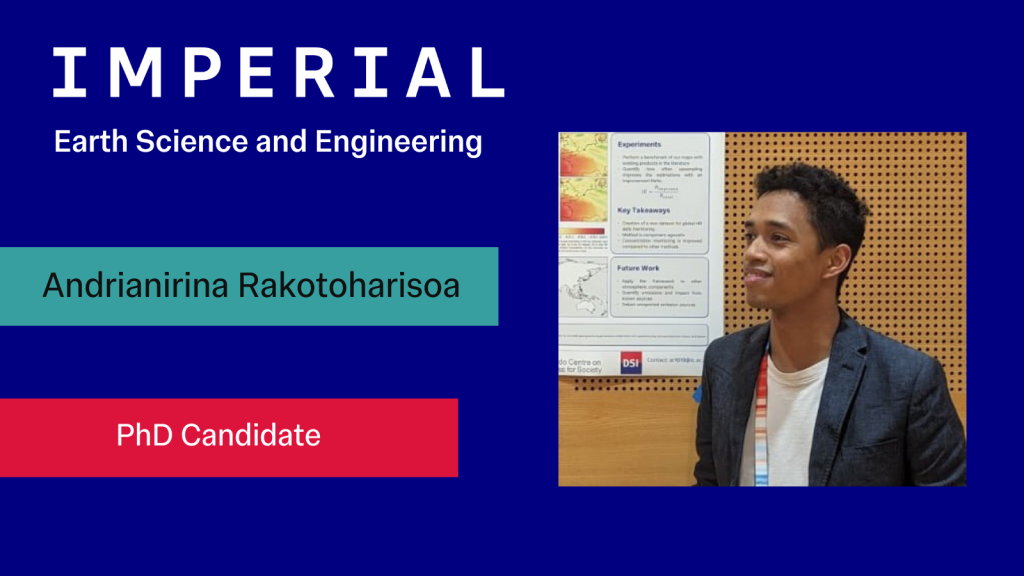Meet Andrianirina Rakotoharisoa, PhD candidate at the Department of Earth Science and Engineering (ESE) at Imperial. In this blog post, Adrianirina discusses his PhD journey at ESE so far, and how his work on monitoring CO2 emissions will hopefully contribute to more effective policy development in the future.
Describe your PhD project in a tweet:
I am trying to improve the monitoring of corporate greenhouse gas emissions by coupling satellite data with machine learning.
How do you see your research making an impact within and beyond academia?
My project focuses on CO2, the gas responsible for the highest temperature increase in the past decade. The impact of my research is twofold: my methods can be applied to other atmospheric components— with the potential to advance research in nearby fields—and the results of my study on CO2 will hopefully inform better policy development in the future.
Talk us through a typical day in your life as a PhD student. How do you maintain a healthy work-life balance?
My day usually starts quite early as I like to exercise before going to work: I wake up around 7.30 for a run or a swim at the pool on campus. I then have breakfast and start working around 9.30. Lunch is a very important moment in the department as most of the PhD students have lunch together around 12.15pm. It’s a good way to socialise and wind down during the day. My working day usually ends at 6.30pm (can be earlier or later depending on the daily imperatives).
How do you navigate challenges and setbacks in your PhD journey?
The key is to accept that there will be challenges along the way and that you will work through them. They are part of the journey and it’s important not to take them personally. Also, when things are going well: consciously acknowledge it.
How do you embody the values of ESE in your research and academic endeavours?
I tried to help foster a feeling of community as part of the Grad Society during my 1st year. We organised the PhD conference so everyone could share their research and the incredible job they have been doing, but also more casual events like the international dinner to share a bit of our own background.
What motivated you to pursue your PhD at ESE?
I wanted my PhD to be applied (as opposed to purely theoretical) and I wanted a relevant topic today. Climate change is the main challenge our and future generations will be facing. From that perspective, once I got the final offer, joining the department was an instant yes.
Are there specific resources or support systems at ESE that have helped you in your academic success?
Active support for our wellbeing, good computing resources and approachable staff!
What advice would you give to prospective PhD students considering a similar research path?
Pick an area of research that motivates you and if there is a good fit with your supervisor, go! It is not necessary to have everything planed (as your PhD will most probably take multiple change of directions) but as long as you are motivated and consistent, you will reach the end.
Where do you see yourself after completing your PhD?
I’m currently exploring multiple options: I would first like to do an internship in a company before the end of my PhD. Ultimately, my decision will depend on three factors: intellectual stimulation, work/life balance and potential income.
What do you do to wind down?
When I’m not exercising, I play in a band (the drums) with friends from the department. I also play board games quite often.
What are colleagues least likely to know about you?
I hesitated for a long time between a career as a musician or a career as a scientist. For 2 years after my masters, I was a full-time musician.
